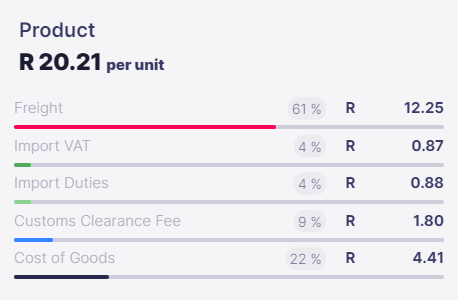If you’re running a small business, chances are you’re thinking about saving some bucks upfront by skipping insurance for your shipments. But what if things don’t go as planned? If you want customers to buy from you again, you have to make sure they get their packages on time and in perfect condition.
Taking out shipping insurance can be a lifesaver when goods go MIA or take a hit in transit. And especially for small businesses that need to watch their bottom line closely, getting shipping insurance can offer that extra layer of security – just what you need for some well-deserved peace of mind.
Shipping insurance offers an elective option allowing you to secure financial compensation in case your shipments go missing, get stolen, or arrive in bad shape while en route to either you or your customers. This is especially handy for small businesses and those who do a lot of international shipping.
If you opt for 100% coverage of the shipment’s value, it means you, as the seller, can send out a new replacement shipment to your customer without worrying too much about extra costs – or at least not too many. The process of shipping insurance usually starts when you’re getting ready to send out a delivery.
The price for this coverage changes depending on the insurance provider you pick and how much your shipment is worth. Regardless, having coverage means your business could get money back if any complications arise during the shipping process. It’s basically like having a safety cushion for those “just in case” moments.
Well, that’s a decision you get to make. If you’re sending out high-value packages, it’s probably a good idea. It can be extremely frustrating for customers to have to reach out to the shipping carrier for a refund and then wait through their claims process.
And what’s worse, the entire experience might make them think twice about shopping with your business again. Believe it or not, around 40% of shoppers are unlikely to give a store another shot if they had a bad delivery experience.
While the majority of shipments usually get to where they’re supposed to go safe and sound, and the odds of them getting lost or damaged aren’t sky-high, the element of surprise is always in play. If your valuable cargo takes an unexpected detour or ends up looking less than satisfactory, you’re definitely going to regret not having taken out shipping insurance.
So, while you’re not necessarily in the danger zone without it, having that insurance cushion can really take a load off your shipping worries!
When you’re bringing in goods from China to South Africa, Airpool’s air freight consolidation service offers a simpler and more trustworthy route to get your products to the market. Air freight is well known for being one of the safest and most reliable methods of transporting goods. When items are shipped by air, they receive meticulous handling that safeguards their quality and condition.
At the airport, there are also strict rules and checks in place to make sure that cargo stays safe. These checks include security screenings and close monitoring, all following strict rules set by aviation authorities.
The process of getting the cargo checked and approved by customs is really efficient. Within just a few hours, most shipments are given the green light to proceed, which cuts down the chances of anything getting damaged or stolen.
At Airpool, we’re not just moving your packages from point A to point B. We’re making sure it’s shielded all the way, so it arrives just as perfect as when it left! Get in touch with us to find out more.
Landed cost is the sum of all expenses associated with importing your goods from China to South Africa. This includes the cost of the goods paid to your supplier, the shipping costs, clearance costs and the import taxes & duties.
It is represented on a per unit cost and helps you with:
Note: This is not what you are paying to Airpool but rather what you are paying to all the suppliers and relevant parties: Airpool, the Manufacturer of the goods and the Import Taxes (VAT & Duties)
